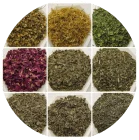Hello there! Lorenzo here.My neighbour brought me a 2 month old tortoise on Monday, he said his mother was going to kill them and he asked me to take care of the little lad.I was interested for a long time in reptile as pets and was at first pretty overwhelmed when I had one in my hand. I spent the whole night trough research and finally did what I felt was the right thing. I will attach images of his enclosure, his dry food which he does not seem to enjoy, the scuttlefish bone and the lamp I am using.When the sun shines I put him out on my balcony, so he gets his daily dose of sunlight. I turn on the heat lamp when I wake up around 9 a.m and turn it off and 11 p.m. when I go to sleep. Should tortoises have a day and night circle too? I tought so. I try to give him something new to eat every day and every morning I change his water bowl and the food, scratching the calcium bone over it. I put him out in the sunlight at 10 a.m to 2 p.m because here in Italy it is pretty darn warm outside and I heard he needs sunlight too. for the substrate I used trixie pine bark with some newspaper under it, I cut a hole in a cardboard box and took two little lids and fill one 2 times a day with fresh water and the other one every morning with fresh food. I soak him every 2 days in the afternoon with lukewarm water and avoid touching him too much, I just take him out for the soak and dig him up when I put him into the sunglight. A thing that makes me worry is that he spends most of his day down the substrate in little holes he buries. He doesn't move for many hours and I always have to wake him up and I hate that. Now that I depicted you my routine, I would like to know if 1 I am doing something wrong 2 if there is something missing in his routine 3 if his sleepy behaviour is completely normal. I thank all of you in advance and hope I can get a steady answer that reassures me. I love the little guy and I don´t know how they treated him in his first 2 months, please help me out








